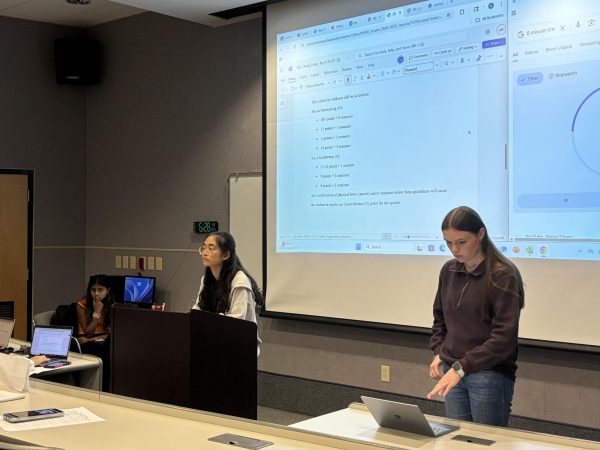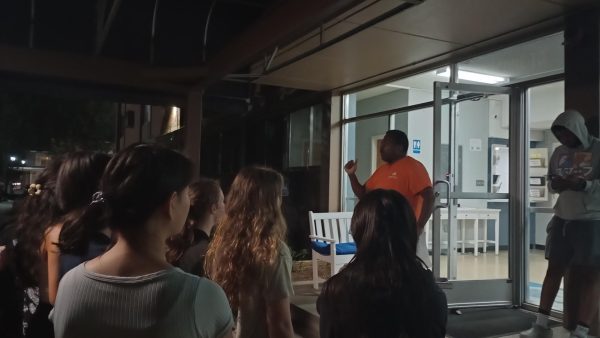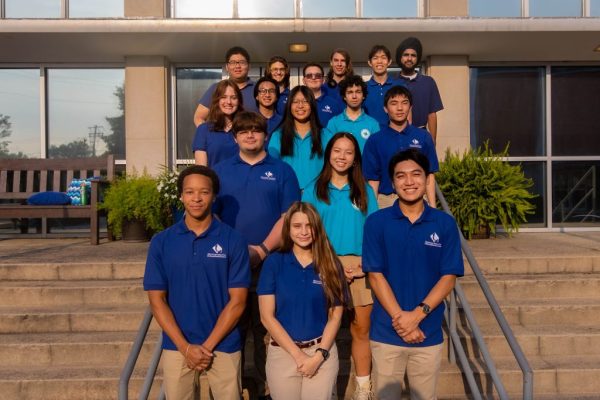Environmental Waste Epidemic: a photo essay
Nina Vo collected the trash pictured throughout a full day at MSMS.
Five MSMS students collected all of the trash they would usually discard in a day and gave them to me. I turned the trash into sculptures, hoping to show others the excessive amount of plastic we all use daily and the corporate negligence happening globally. I attempted to turn ramen packets and egg cartons into something appealing to the eye yet saddening.
One of the students who collected trash for me, senior Aastha Banga, feels as if our world is one of duplicity, where the wonder of nature coincides with the ugliness of corporate waste and plastic production. “You see all these pretty lakes and hills, and then you see piles of garbage behind buildings and you see McDonald’s leftovers on the street and trash cans being overflowed with plastic bottles,” Banga said.
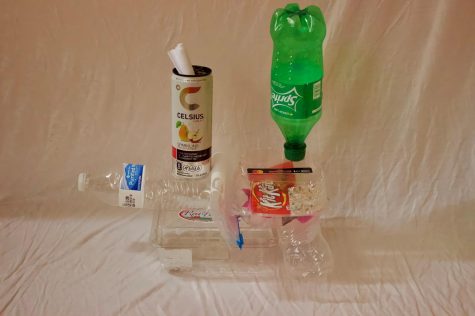
The US creates over 258 million tons of municipal solid waste annually, an undeniably unethical amount, as excessive waste contributes to the cutting down of rainforests, global warming, depletion of the ozone layer, water/land/air pollution and the death of marine life. Banga values the beauty in life, and she is scared that the world does not share her concern for maintaining the safety of our planet.

“We are surrounded by beautiful, beautiful trees and flowers and rivers, and it’s such a privilege to see breathtaking sights of sunsets and waterfalls and even just plain green grass. We get the opportunity to live with such beauty, and I think we humans don’t appreciate it enough and take it for granted.”

Banga is vice president of the Student Environmental Awareness League (SEAL) at MSMS, an organization aiming to help create change during this global crisis. Since Banga’s membership in it, SEAL has organized cleanups, created initiatives for recycling, and created and delivered many presentations on environmentalism.
Banga, however, fears that her efforts and the efforts of her fellow activists across the world may not be enough. “If we keep going the way we are with excessive plastic production and polluting the environment, this world will soon become unlivable for humans.” Climate scientists say that if global change does not occur, we have 20 years before climate change will plunge us into catastrophe, and the earth will irrevocably overflow with garbage by 2100.
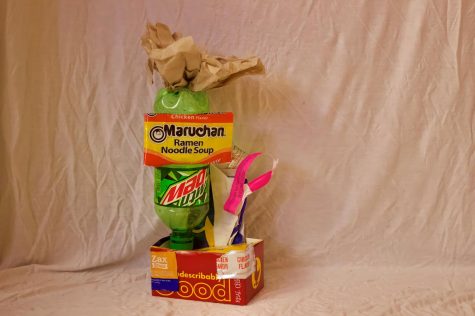
Banga may fear that her efforts are not enough, but she still makes the efforts regardless, and urges her fellow students to do so as well. Mass consumerism and huge corporations are mainly to blame for the climate and waste crises our planet is experiencing. Legislation to prevent these corporations from producing so much waste has not yet passed as the clock continues to tick for the US.

Gracie Rowland is a senior from Columbus, Mississippi. She dedicates her life to the pursuit of truth and wakes up every morning in search of beauty. Her...




